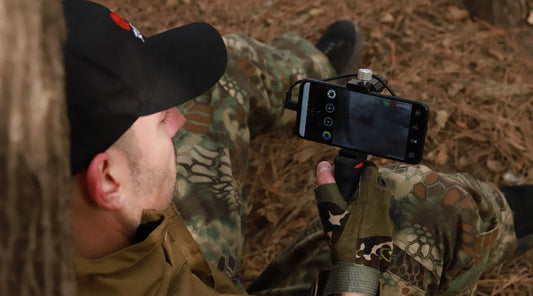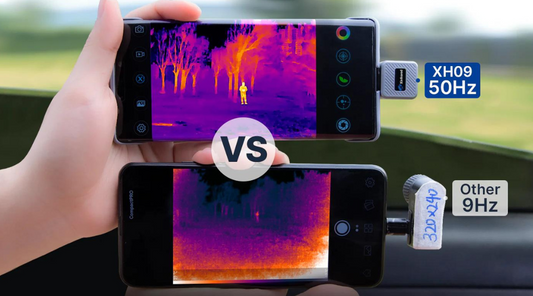5 Mind-Blowing Facts About Thermal Imaging You Never Knew
Thermal imaging, a technology that once seemed limited to science fiction, has become an integral part of our lives. It's not just for scientific applications anymore. This technology, which allows us to see the world in a different light, holds some fascinating secrets. In this article, we'll uncover five mind-blowing facts about thermal imaging that you probably never knew.
1. Historical Significance
Thermal imaging isn't a recent invention. Its roots trace back to the early 20th century when scientists began experimenting with heat-sensing devices. The pioneering work of Sir William Herschel in the 18th century laid the foundation for thermal imaging. Herschel discovered infrared radiation, which is the basis of thermal imaging.
Fast forward to the 21st century, and thermal imaging has evolved into a sophisticated technology. It's now used in various fields, from firefighting to medical diagnostics, making it an integral part of our modern world.
2. How Thermal Imaging Works
Have you ever wondered how thermal imager works? At its core, it captures the heat emitted by objects and converts it into a visible image. This technology uses a special camera called a thermal camera or infrared camera.
Thermal cameras detect infrared radiation, which is emitted by all objects with a temperature above absolute zero. The camera then converts this radiation into a visual image, creating a "heat map" of the scene. The warmer areas appear brighter, while cooler regions appear darker. This is what allows us to see objects in complete darkness or through smoke and fog.
3. Applications Beyond the Obvious
While we often associate thermal camera with military and surveillance, its applications extend far beyond that. Various industries have harnessed its power to improve safety, efficiency, and more.
For example, in the energy sector, thermal imaging helps detect faulty electrical components before they cause fires. In agriculture, it aids in monitoring crops and livestock health. Search and rescue teams use thermal cameras to locate missing persons, even in challenging terrains. These applications underscore the versatility of thermal imaging technology.
4. Surprising Use in Everyday Life
You might be surprised to learn that thermal imaging is present in your daily life, often in ways you wouldn't expect. Some smartphones now include thermal imaging capabilities, which can be used for tasks like checking food temperatures or identifying drafts in your home. This technology can help you save money on your energy bills and ensure your food is cooked to perfection.
Furthermore, thermal camera plays a significant role in medical diagnostics. It can be used to detect various health issues, including inflammation, circulation problems, and even breast cancer. Its non-invasive nature makes it a valuable tool for early disease detection.
5. Future Trends and Advancements
As technology advances, so does thermal imaging. Exciting trends and innovations are on the horizon, promising even more applications and benefits.
One of the emerging trends is the integration of thermal imaging with augmented reality (AR). This combination can enhance navigation, gaming, and more by providing users with a "thermal overlay" of their surroundings. Imagine using your smartphone for gaming and seeing virtual objects blended seamlessly with the real world through it.
Moreover, thermal camera is making strides in autonomous vehicles. It can help these vehicles detect and respond to road hazards more effectively. With the ongoing development of self-driving cars, thermal imaging could play a vital role in ensuring their safety and efficiency.
Thermal imaging is not just a technology for specialized professionals. It's a part of our history, a fundamental science, and an everyday companion. With its extraordinary applications and ongoing advancements, it's undoubtedly a technology that will continue to shape our future.
To unlock its full potential, it's essential to stay informed about the latest developments in thermal imaging. As it turns out, this technology has far more to offer than what meets the eye. The next time you see a thermal image, you'll have a deeper appreciation for the incredible science behind it.




